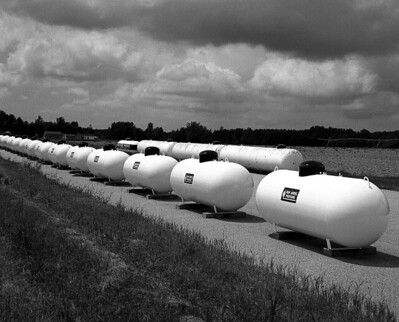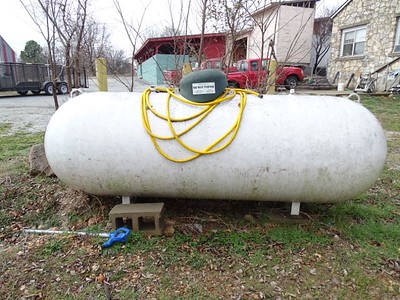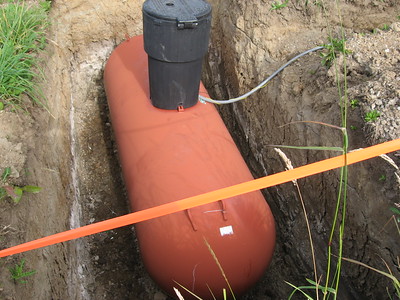
If you’re in the market for a used 250 gallon propane tank for sale, you’ve come to the right place. This guide will introduce you to the different types of used 250 gallon propane tanks that are available, as well as provide some tips on how to choose the right one for your needs.
There are two main types of used 250 gallon propane tanks: above ground and underground. Above ground tanks are typically less expensive, but they require more maintenance than underground tanks. If you choose an above ground tank, be sure to check for leaks regularly and have it inspected by a professional every few years.
Underground tanks are more expensive upfront, but they’re easier to maintain in the long run. If you choose an underground tank, be sure to have it professionally installed by a qualified contractor.
Once you’ve decided on the type of tank you want, it’s time to start shopping around. You can find used 250 gallon propane tanks for sale at many online retailers, as well as some hardware stores and home improvement centers. When shopping online, be sure to read customer reviews carefully before making your purchase.
With a little bit of research, you should be able to find a used 250 gallon propane tank that meets your needs and budget.
Read related article: Is 250-Gallon Propane Tank Capacity Enough for a Home?
Where to Buy Used 250 Gallon Propane Tank
There are several places where you can find a used 250 gallon propane tank for sale:
- Propane suppliers: Local propane suppliers may have used tanks available for sale or know of suppliers who have used tanks available.
- Online marketplaces: Websites like Craigslist, eBay, and Facebook Marketplace often have listings for used tanks.
- Classified ads: Check classified ads in local newspapers or online classified ad websites for listings of used tanks.
- Equipment rental companies: Many equipment rental companies rent out propane tanks, and when they have older tanks that have been retired from rentals, they sell them as used.
- Tank resellers: Some companies specialize in buying and reselling used tanks. They can often provide a wide selection of used tanks at competitive prices.
- Online classifieds: Websites like Craigslist and Facebook Marketplace have listings for used propane tanks for sale.
It is important to note that when buying a used tank, it’s essential to inspect the tank thoroughly for any signs of damage or wear and tear, and to make sure it is up to date with safety standards. It is also important to check the expiration date of the tank, as propane tanks have a lifespan and need to be recertified after a certain period of time.
Cost of Used 250 Gallon Propane Tank
If you are considering purchasing a used 250 gallon propane tank, there are a few things you need to take into account. The first is the cost of the tank itself. Depending on where you purchase it, a used 250 gallon propane tank can cost anywhere from $200 to $600. The second is the cost of installation. This can range from $300 to $700, depending on the complexity of the job. Finally, you need to factor in the cost of the propane itself. This will vary depending on how much propane you use and the current market price.
The cost of used propane tank is half of the brand new.
How to Determine a Fair Price
When buying a used propane tank, it’s essential to know you’re paying a fair price. Here’s a simple guide to help you make an informed decision:
Factors Influencing the Tank’s Value
- Condition: The overall state of the tank is crucial. Tanks with minimal wear, no rust, and intact components are more valuable.
- Age: Newer tanks might be priced higher, but age is not always a direct indicator of quality. Older tanks in great condition can still be valuable. See below for more information.
- Capacity: Larger tanks generally cost more than smaller ones.
- Brand: Some brands might be more expensive due to their reputation for quality or durability.
- Maintenance History: Tanks with a documented history of regular maintenance can be more valuable.
Researching Market Prices
- Check Online Listings: Websites and online platforms selling used propane tanks can give you an idea of current market prices.
- Ask Industry Professionals: Propane suppliers or related professionals might have insights into current price trends.
- Consider Regional Differences: Prices might vary based on your location and local demand.
Negotiation Tips
- Be Informed: Know the average price range for the type and size of tank you’re interested in.
- Ask Questions: Inquire about any possible issues or the reason for selling. This can give you leverage in negotiations.
- Be Willing to Walk Away: If the price isn’t right, and there’s no room for negotiation, it’s okay to look elsewhere.
- Consider Extras: If the seller is including accessories or offering delivery, it might justify a slightly higher price.
By considering these points and doing thorough research, you can confidently negotiate a fair price for a used propane tank.
Factors to Consider When Buying a Used 250 Gallon Propane Tank
When purchasing a used 250 gallon propane tank, it is important to take into consideration a few factors in order to ensure that you are getting a good quality tank. Below are some factors to keep in mind when making your purchase:
Age of the tank
If you’re in the market for a used 250 gallon propane tank, one of the most important factors to consider is the age of the tank. While a newer tank will obviously be more expensive, it’s also likely to be in better condition and have a longer lifespan. Conversely, an older tank may be more affordable but could come with a host of problems, such as corrosion or leaks.
So, how can you determine the age of a propane tank? One way is to simply ask the seller. If they don’t know (or won’t tell you), there are a few other things you can look for. For instance, each propane tank has a serial number stamped on it; this can usually be found on the collar of the tank. The first two digits of this serial number represent the year the tank was manufactured.
Another way to tell the age of a propane tank is by its appearance. A newer tank will generally be cleaner and have fewer scratches or dents than an older one. Of course, this isn’t always foolproof – some tanks may have been well-maintained regardless of their age, while others may have been neglected regardless of how recently they were manufactured.
If you’re still unsure about the age of a particular propane tank, your best bet is to have it inspected by a qualified professional before making a purchase. They’ll be able to give you a better idea as to whether or not the tank is worth.
Certification and safety inspection
When you are looking to buy a used 250 gallon propane tank, it is important to check the certification and safety inspection. This will ensure that the tank is safe to use and that it meets all of the necessary safety standards.
The certification for a propane tank can be found on the manufacturer’s website. You will want to make sure that the tank has been inspected by a certified inspector within the last 12 months. The safety inspection should include a visual inspection of the tank as well as a pressure test.
If you are buying a used tank from a private seller, you may want to have the tank inspected by a certified technician before you purchase it. This will ensure that the tank is safe to use and that it meets all of the necessary safety standards.
Price
Price is a factor to consider when buying a used 250 gallon propane tank. The cost of a new 250 gallon propane tank can range from $300 to over $600. The cost of a used 250 gallon propane tank will be less, but it is important to consider the condition of the tank before making a purchase. A used tank that is in good condition can be a great deal, but a tank that is in poor condition can be a liability. It is important to inspect a used propane tank before purchase and to have it evaluated by a qualified technician to ensure that it is safe and in good working condition.
As with any purchase, price is a factor to consider when buying a used 250 gallon propane tank. It is important to compare prices from different sellers to get the best deal. However, it is also important to consider other factors such as the condition of the tank and the seller’s reputation before making a final decision.
When Buying Used Propane Tank, It Is Important to Have It Inspected by Qualified Technician
If you’re thinking about buying a used propane tank, it’s important to have it inspected by a qualified technician first. There are a few things to look for when you’re having the inspection done. The first is the condition of the tank. Make sure that there are no dents or rust spots.
The next thing to look for is the pressure relief valve. This is a safety feature that allows excess pressure to be released from the tank. Make sure that the valve is in good working condition and that there are no leaks.
Finally, check the expiration date on the tank. Propane tanks have a limited lifespan, so you want to make sure that you’re not buying one that’s about to expire. By having the used propane tank inspected by a qualified technician, you can be sure that it’s safe to use and that you’re getting a good deal on it.
Here are other few things to keep in mind when having your propane tank inspected:
- The technician should check for any leaks in the tank.
- The pressure gauge should be checked to make sure it is accurate.
- The valves and fittings should be checked for damage or wear.
- The tank should be cleaned and all rust should be removed.
By having your used propane tank inspected by a qualified technician, you can be sure that it is safe to use and will work properly.
Used Propane Tanks are Sold On As is Where is Basis
When you buy a used propane tank, it’s important to remember that it’s being sold on an as-is, where-is basis. That means that the seller isn’t responsible for any damage that may have occurred to the tank while it was in their possession. It’s up to the buyer to inspect the tank before purchase and determine if it’s in good enough condition to use.
If you do decide to buy a used propane tank, be sure to check for any damage that may have occurred. Look for dents, corrosion, or other signs of wear and tear. If the tank is more than 10 years old, it’s likely that it will need to be replaced soon. However, if it’s in good condition, a used propane tank can be a great way to save money on your purchase.
Why the Size and Shape of a 250-Gallon Propane Tank Matters
When you have a 250-gallon propane tank, it’s important to know how big and what shape it is. Here’s why:
Setting Up the Tank:
The tank needs a certain amount of space. You have to make sure it fits where you want to put it. Also, there are safety rules about where you can place the tank, so knowing its size helps follow these rules.
Moving the Tank:
If you need to take the tank to another place, knowing how big it is will help. This way, you can choose the right vehicle to move it and make sure it passes through doors or tight spots.
Using the Tank:
The tank can hold a lot of propane. Knowing its size helps you understand how much propane you have and when you’ll need more.
Connecting Things to the Tank:
Different tanks might need different parts to connect to them. By knowing your tank’s size, you can get the right parts.
Selling the Tank:
If you ever want to sell the tank, people will ask about its size. This helps them decide if they want to buy it.
Looks and Your Yard:
Some people want their tank to look good in their yard. Knowing its size can help decide where it should go so it looks nice.
So, the size and shape of your propane tank are important for many things, from using it safely to making it look good.
Read related article: 250-Gallon Propane Tank Weigh & Dimension (Different Materials)
Know the Tank’s Previous History and Where It Was Used
It’s beneficial to know about the tank’s history. How it was used and cared for can hint at its current condition. Ask the seller about the tank’s maintenance and if it was used continuously or sat empty for long periods. Also, find out where it was stored.
Tanks kept outdoors might show more wear than those stored inside. When talking to the seller, pay attention to how they answer. If they seem unsure or hesitant, they might be leaving out important details. Make sure you’re comfortable with the information before buying.
Transfer of Ownership and Documentation
When you buy a used tank, there are certain papers you should get. These papers show that the tank belongs to you now. It’s also vital to have documents that prove the tank was looked after and checked often.
This helps you know the tank is safe. There are also laws about owning and moving a used propane tank. So, make sure to understand these laws and follow them. This will help you avoid any problems in the future.
It might also be a good idea to check if the seller has any warranties or guarantees on the tank. While it’s used, some sellers might still offer some form of assurance against defects or issues.
Lastly, if you’re unsure about the legal rules for owning or moving a propane tank in your area, consider reaching out to local experts or authorities. They can provide guidance to ensure you’re in compliance and using the tank safely. Always remember, when it comes to propane tanks, safety should be a top priority.
Renting vs Buying Your Own Tank: Pos and Cons
Reconditioned vs. Refurbished: Which One Would You Choose
| Aspect | Reconditioned Propane Tank | Refurbished Propane Tank |
|---|---|---|
| Definition | Improved to restore to a good working condition, often by replacing parts. | Updated and improved to bring it close to the original or ‘like-new’ condition. Often involves cosmetic improvements. |
| Focus | Primarily on functional aspects. | Both functional and aesthetic improvements. |
| Cost | May be less expensive than refurbishing as it might not involve cosmetic work. | Might be more expensive due to the added cosmetic work. |
| Duration | Can be quicker if only a few parts need replacement. | Might take longer due to additional detailing and painting tasks. |
| Outcome | The tank works well, but might still show signs of previous use. | The tank not only works well but also looks almost new. |
| Best for | Situations where functionality is the main concern. | Situations where appearance and function are both important. |
Underground vs. Above Ground: Which Tank Would You Choose
| Feature/Aspect | Underground Propane Tanks | Aboveground Propane Tanks |
|---|---|---|
| Aesthetics | Hidden, preserves landscaping | Visible, may be seen as unsightly |
| Protection | Naturally shielded by earth | Exposed to elements |
| Temperature Stability | More stable due to ground insulation | Can fluctuate with external temperatures |
| Installation Costs | Generally higher due to excavation | Generally lower |
| Maintenance Accessibility | Less accessible (though key components are above ground) | Easily accessible |
| Potential Ground Movement | Could be affected by shifting soil | Not affected |
| Space Consumption | Below ground, doesn’t consume yard space | Consumes yard or lot space |
| Replacement Ease | More challenging to replace | Easier to replace |
| Exposure to Damage | Lower risk due to burial | Higher risk due to exposure |
Conclusion
A used 250 gallon propane tank for sale can be a cost-effective option for those in need of a propane tank. However, it’s important to thoroughly inspect the tank before purchasing to ensure it is in good condition, free of defects and safe to use.
Factors to consider when buying a used tank include age, condition, certification, safety inspection, price, and location. Online marketplaces, propane suppliers, equipment rental companies, online classifieds, local classifieds and specialized online marketplaces can be good sources for finding a used propane tank.
Always hire a professional to inspect the tank before making the purchase and comply with any regulations regarding the use and storage of propane tanks. With proper research and due diligence, a used propane tank can be a reliable and cost-effective option for your energy needs.

Mike is an experienced propane technician with over 15 years of professional experience in the field. He has dedicated his career to helping customers with their propane needs, from installation to maintenance and repair. Together with Jeremy, he co-founded this website to provide useful information and guidance to customers seeking reliable propane services.







